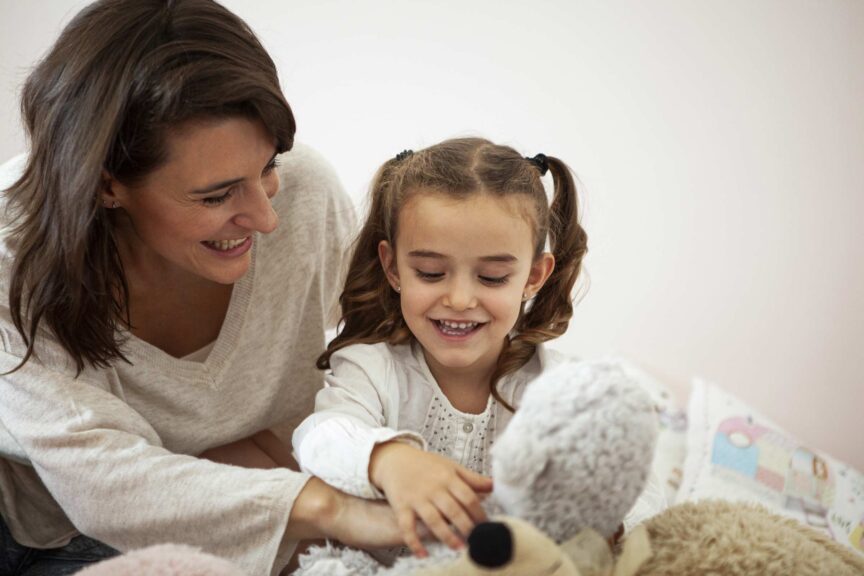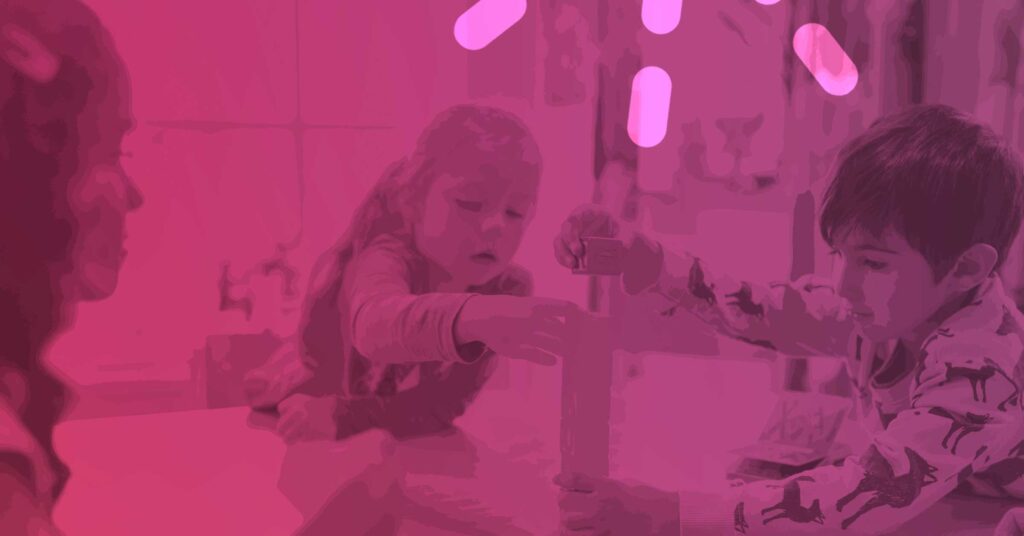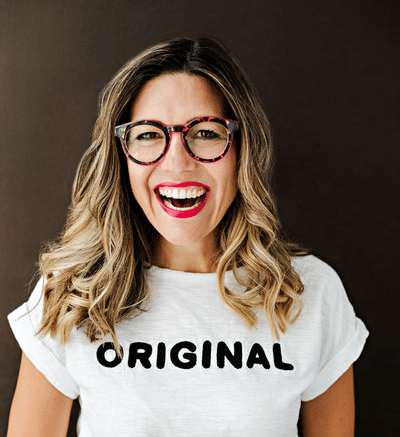How do we help kids truly know who they are, rooted in identity and confident children of God? How do we tell them the truth and stop pretending the world around them won’t answer that question when we struggle to?
The word “identity” has caused confusion over the last number of years. And I wonder if we, as the Church, have been part of the problem—misusing or abusing the word, from a place of misunderstanding, fear, and even bias?
I am choosing, in my life and in my ministry, to run toward the thing that is causing so many to run away from the Church. I am choosing to sit in the tension of not knowing, of learning, of walking with—with the hope of watching fewer walk away.

Why Identity Is Complicated
If you find the word identity complicated, there’s a simple reason why that may be. Identity has come to simultaneously mean “what makes me unique” and “what allows me to belong.” My identity is mine, and it is unlike any other. It is my humanity, my DNA, my fingerprint—the sum of my parts that cannot be replicated.
Yet it is also what allows me to fit into or belong to a certain culture or people group. It helps me find my tribe, so to speak.
It may also be what disqualifies me from fitting in with other people’s groups. So, if you’re struggling to really settle into the definition of identity (let alone how you would choose to identify), imagine being a child right now, with the same questions and the same feelings, yet without being fully formed or developed.
The question of identity is complex and deserves tenderness, gentleness, and the learning posture of a willing listener.
There are a few reasons we’ve grown weary of the “identity” conversation in the Church:
- We are afraid of getting it wrong. This is a valid concern. However, we should be more afraid of bad theology than of where a conversation may take us.
- We’ve decided parents should handle it. Whenever we create an “us vs. them” scenario with parents, we’ve forgotten that we are called to be family first. We are called to walk in community and discipleship with one another. “Equipping” with resources is not the same thing. The church community can be a place for this conversation. But we must first decide that these are our families and our kids.
What if we have been starting the conversation about identity in the wrong place altogether?
A Kaleidoscope
Identity isn’t an issue to be solved; it’s a wonder to behold.
The problem for some of us is that we immediately assume the conversation will be about gender and sexuality when the word “identity” comes up. Even though we know that our identity is a kaleidoscope of so many variables and defining features, we limit the conversation with each other to the part of it that can make some of us the most uncomfortable.
What if we have been starting the conversation about identity in the wrong place altogether? What if the conversation was about so much more than the intimacy of gender and sexuality? What if identity could be about truly seeing one another, mining for the Imago Dei in one another? And we operated from a working assumption that each one of us is created in the very image of God? What if we believed this is a very good place to begin the conversation?
Identity isn’t an issue to be solved; it’s a wonder to behold.
Identity Evolves
As I have studied and learned and written about identity over the last couple of years, I’ve learned something about myself that has been both freeing and clarifying. Some aspects of my identity have changed over the years. Identity isn’t a static state of being. An evolving identity is both natural and unavoidable.
I’ve also learned these descriptors are not the fullness of who I am. Because I have found that, equally natural and unavoidable, there are things about me that never change. These things remain the same no matter my personal evolution.
What if we could actually name what defines—no, identifies—us as children of God so that a child would always know who, and what, they are?
When I was eight, I did not want to be a mother. I did not dream about getting married. I was neither a mother nor a wife. But I am both of those things today. Not only did I become the things I didn’t think I wanted, but my heart and mind both also evolved as my body and spirit responded to the life I was living.
In fact, I am many things I didn’t used to be. I am middle-aged, a pastor, coach, auntie… And other things I used to be—blonde, short, opera singer—I have outgrown. (I traded blonde for strands of naturally occurring glitter somewhere around the same time I evolved into middle age. Sigh).
I wonder what would shift in the conversation if we chose to focus on what is true about each one of us—the things that never change? What if we could actually name what defines—no, identifies—us as children of God so that a child would always know who, and what, they are?

What Is Always True About Me
Identity statements usually begin with “I am…” And beyond all facts that my life will point to about who I am and how you know, there are a few things that I get to be and have always been made to be because God made it so.
I am known.
I am loved.
I am led.
I am a child of God.
I am a wonder. My life will tell God’s story of wonder because who I am points back to it.
In order to truly know who I am, I have to know what is always true about me. This is true even when life happens. It is true even if I don’t understand, even as my world, my body, and my story change over time.
A Solid Foundation
We have the chance to tell kids the truth about who they really are before the world gets enough years to lie to them, bending their ears, whispering confusion, and authoring a story that draws them away from their foundation.
And while we navigate the tension between uniqueness and belonging, I have learned that one truth allows us to be fully ourselves and to fully belong. This truth is that the more we look like Jesus, the closer we follow and walk in His ways, the more we become who we were made to be. That is not only good news! It is a solid foundation upon which we can live our lives, no matter how our story unfolds.
This truth is that the more we look like Jesus, the closer we follow and walk in His ways, the more we become who we were made to be.












